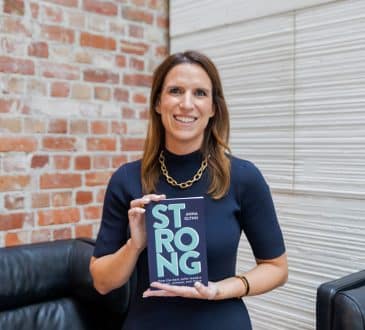5 Things You Should Know As A Student of Industrial Design

The rampant technological innovations in the 21st century have brought the much-needed focus on the importance of industrial design. There is no easy way to encompass the world of industrial designing into the phrase of “making things in factories”. Someone who is an industrial designer will surely agree with what I have just said.
Despite the general public knowing so limitedly about this profession, it is actually, but unsurprisingly, quite in demand. After all, if you don’t have good industrial designers, your products won’t work as per standards, you will lose money, and the country’s economy will ultimately be affected. It is a whole cycle put into a very skeletal description but says enough of the truth. So, the point is, the world needs talented industrial designers – and you might be one of them.
In this article, I intended to offer you a glimpse into what it means to study industrial design and make a career out of it. Take note of the 5 points mentioned below.
-
Understand the vastness of industrial designing
Before you become an industrial designer, you must know what it means to be one. Understand that industrial designing is a wide creative field that involves a myriad of bigger and smaller things. From designing the application on the Play Store to the cell phone you use to download those applications, it is the craftsmanship of an industrial designer that comes into play. Generally, there are three areas where such designers are involved, and these areas concern product designing which you understand, user experience designing such as designing a digital museum, and user-interface designing such as creating mobile applications. Anything that is technology will have inputs from designers.
-
What you will learn in an industrial design school
Any good school for industrial design will offer you comprehensive coursework comprising theoretical and practical modules. There will be several things, however, commonly taught across most curriculums in the world. Your course should include modules on sketching, computer-facilitated designing, business studies, design psychology, design ethics, introduction to the history of technology, and applied research. Most likely, you will be mandated to undertake an internship program periodically. All the fundamentals of machinery, computers, and software will be taught to you so that you can equip yourself in any kind of professional environment.
-
A definite skillset
Of course, the whole point of getting formal education is to develop a skillset essential to working as an industrial designer. But, some designers end up becoming good at their craft, and some don’t. You don’t want to be the ones in the latter category. Throughout your education and afterward, you must ensure that you continue working on several skills for better results. These include logic or reasoning skills essential to study the needs of a product in-depth, artistic temperament to provide the much-needed design efficiency and presentability to the product, computer skills (of course!), interpersonal skills to be able to understand what the client wants and effectively communicate your opinion regarding the myriad aspects of the work in question, and problem-solving skills to fix any issue in the product.
-
Many career opportunities
As I said before, the empire of industrial designing keeps getting bigger so it is expected that there are many career options – and yes, there are! There are tons of things you can do if you pursue industrial design; these include product designer, design researcher, interior designer, automotive designer, package designer, application designer, and whatnot. In case you decide to specialize through a Master’s degree program, your opportunities will only increase and become more yielding.
-
Where to study
After all of the above information, it is time I told you where the best courses on industrial designing are. If you are considering studying abroad, then I have a few suggestions to offer. The best schools for industrial design can be found in the Massachusetts Institute of Technology (MIT), US, FTH Federal Institute of Technology of Zurich-Switzerland, University of the Arts, London, Pursue University, Indiana, Virginia Tech, US, Parsons The New School of Design, US, and OCAD University, Canada.
Add CEOWORLD magazine to your Google News feed.
Follow CEOWORLD magazine headlines on: Google News, LinkedIn, Twitter, and Facebook.
This report/news/ranking/statistics has been prepared only for general guidance on matters of interest and does not constitute professional advice. You should not act upon the information contained in this publication without obtaining specific professional advice. No representation or warranty (express or implied) is given as to the accuracy or completeness of the information contained in this publication, and, to the extent permitted by law, CEOWORLD magazine does not accept or assume any liability, responsibility or duty of care for any consequences of you or anyone else acting, or refraining to act, in reliance on the information contained in this publication or for any decision based on it.
Copyright 2024 The CEOWORLD magazine. All rights reserved. This material (and any extract from it) must not be copied, redistributed or placed on any website, without CEOWORLD magazine' prior written consent. For media queries, please contact: info@ceoworld.biz
SUBSCRIBE NEWSLETTER








